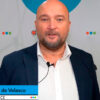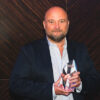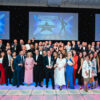Mixed junior trends for Spanish agency sector
02 November 2017
The Spanish outbound business is experiencing mixed fortunes, with high school demand increasing while the growing mini-stay segment damages traditional summer school bookings, according to Spanish agency association Aseproce, which held its annual workshop in Madrid last week.
Speaking to StudyTravel Magazine at the fifth annual Aseproce workshop, Oscar Porras, President of the association, said, «We have noticed fewer junior students this year, but we have noticed a good increase for high school programmes in general.»
Commenting on the mini-stay business – short school group programmes of typically five days – he said, «These courses are increasing more and more in Spanish high schools, and this is one of the main reasons that the junior market is going down as some parents choose not to reserve a summer programme if their child has done a mini-stay.»
With regards to the burgeoning high school business, Oscar estimated that around three-quarters of Spanish students that chose high school programmes were going abroad for full academic years, and revealed that Ireland and Canada were becoming more popular. He added that over recent years, the J-1 visa scheme for high school exchange in the USA has become less popular.
At its fifth annual workshop, Aseproce welcomed member agencies as well as other established Spanish agencies to meet with mostly IALC-accredited language providers and a consortium of British boarding schools. «This workshop is the biggest to date, with 55 exhibitors,» he said.
Simon Manley, the UK Ambassador to Spain, opened the event, and welcoming delegates he said that at the heart of the special relationship between the UK and Spain was education. «Our country is proud of the presence of so many international students. We are open,» he added.
Matthew Knott, News Editor of StudyTravel Magazine, also presented data from the forthcoming global market report on the ELT sector (see December 2017) as well as statistics from the magazine’s annual status surveys of language schools and their impacts on the Spanish agency business.
He outlined that reporting schools in Ireland had the highest percentage of Spanish students in 2016 at 16.5 per cent, followed by the UK (9.6) and Germany (6.7). Spain was outside the top ten nationalities in New Zealand, Japan, South Africa and the USA. He also showed that Australian schools reported the highest percentage of agent-based recruitment of students at 86.5 per cent.
Commenting on association activities, Oscar told StudyTravel Magazine that Aseproce has been working closely with the Canadian embassy to develop Canada as a study destination, with Canadian public school boards becoming gradually more conscious of the «huge market» in Spain. He added that the association was now collaborating with authorities in New Zealand and organising a fam trip to the country.
Aseproce’s partner school scheme, which provides educators with marketing opportunities to Spanish agencies, market intelligence and workshop discounts, has now reached 25 schools, he said.
Commenting generally on the direction of the industry, Oscar said, «The market is changing, we have to have new products and new things. Most of the agents are tired of standard courses. Things like specific-subject programmes and integration courses will become more popular.»
Dovetailed with the workshop, Aseproce held a networking dinner event to celebrate its 30th anniversary. Commenting on the landmark, Oscar said, «It means a lot to reach 30 years. We started with just two or three agencies that wanted to be stronger together, and now we have more than 50. We have strived to be more professional, we now have a quality seal, and this has been one of the highlights.»
At the anniversary event, Aseproce unveiled two videos it made to mark the occasion, and presented gifts to staff and former presidents of the association.
By Matthew Knott (See StudyTravel Magazine)






